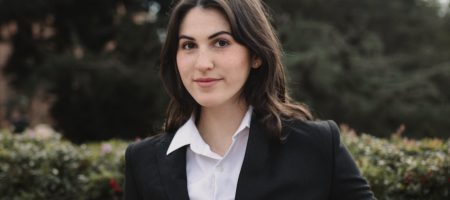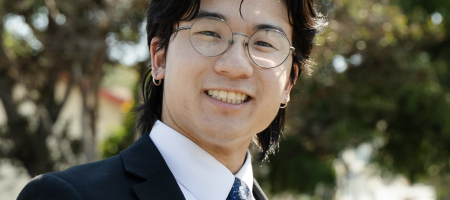Student Spotlight – Madison Bishop
Meet UCLA undergraduate researcher Madison Bishop!
Madison majors in Psychology, minors in Applied Developmental Psychology, and is a part of the UCLA/Keck Humanistic Inquiry Undergraduate Research Awards program. Her project, “From Hearing to Understanding: How Parent’s Language Impacts Children’s Emotion Categorization,” aims to share information that will help families and early childcare centers better support children’s emotional and social-cognitive development.
How did you first get interested in your research project?
I first got interested in my project when exploring the difference between children’s emotion categorization abilities in the Language and Cognitive Development Lab. I was fascinated by what factors may have contributed to some children being better at categorizing different emotions such as happy, sad, and angry.
What has been the most exciting aspect of your research so far?
The most exciting aspect of my research so far has been the freedom of developing my own project. I have enjoyed setting a timeline and holding myself accountable.
What has surprised you about your research or the research process?
I have been most surprised by the amount of diverse research that is out there. It has been interesting to find several articles that support my hypothesis, but then also stumble upon one that completely contradictions it.
What is one piece of advice you have for other UCLA students thinking about doing research?
My biggest piece of advise I have for other UCLA students thinking about doing research is to reflect on what topics you find the most fascinating. Research is a very time-consuming and tedious process, so you want to make sure that what you are learning about excites you!
What effect do you hope your research has in your field, at UCLA, in your community, or in the world?
I hope my research will have a lasting positive impact on the field of developmental psychology. Through my project, I aim to share information that will help families and early childcare centers better support children’s emotional and social-cognitive development.



